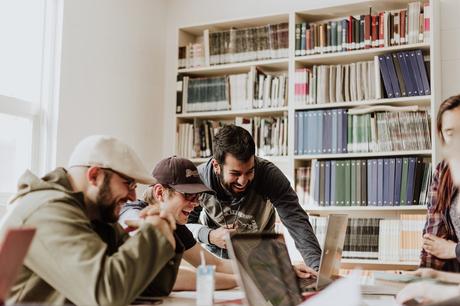Graduate school can be extremely demanding, with assignments, research, and the pursuit of excellence consuming the bulk of your time and energy. The quest for educational achievement, such as a master’s degree, often leads to long hours of study and high levels of stress.
However, striking the right balance between academic rigor and personal well-being is crucial for long-term success. Fun and relaxation are not just luxuries; they are essential components of a well-rounded graduate experience. Below, discover methods to fit leisure into your hectic grad student schedule.
Understanding the Importance of Work-Life Balance in Grad School

Mastering work-life balance during graduate studies is crucial for academic success. Students who prioritize relaxation often return to
their studies with improved focus and creativity. Leisure activities help prevent burnout and other stress-related issues.
It’s essential to view non-academic pursuits as part of personal and academic development rather than mere procrastination. Engaging in hobbies, social events, or exercise can significantly enhance mood and cognitive function.
Achieving work-life balance means recognizing the importance of both academic excellence and personal fulfillment. By balancing both spheres, students can sustain motivation and productivity. Incorporating activities like social casino can provide necessary breaks and contribute to a more sustainable grad school journey.
Strategic Time Management Tips for Graduate Students
Successful grad school experiences hinge on efficient time management. Begin by meticulously planning your week, allocating time for study, lab work, job duties, and breaks. Digital tools like calendars and reminder apps help keep commitments visible.
Set realistic goals and break tasks into smaller chunks for gradual progress. Completing these smaller tasks boosts productivity and frees up mental space. Delegating responsibilities, whether in household chores or group study sessions, can save time.
Avoid multitasking, especially with complex tasks, to maintain efficiency and reduce stress. Learn to say “no” when necessary, prioritizing tasks and evaluating personal costs. Balancing academic pursuits with relaxation and fun is crucial for overall success.
Incorporating Short Breaks and Leisure Activities Into Your Routine
Short breaks throughout the day, like those in the Pomodoro technique, can fight fatigue and boost focus. These intervals are great for quick walks, stretching, or brief meditation sessions. Even 15-minute leisure activities, such as reading a chapter or playing a game, can offer stress relief without taking up too much time.
Weekends or days off are perfect for longer leisure pursuits, like socializing or pursuing hobbies. These breaks are crucial for deep relaxation and maintaining a life outside of Master’s Degree in Bilingual Education responsibilities. They can also help forge new connections and interests.
It’s important to see leisure activities as essential parts of a healthy routine, not just rewards for work. Balancing academic achievement with personal well-being is key. With deliberate planning, grad students can prioritize leisure time alongside their studies.
Leveraging Campus Resources for Stress Relief and Enjoyment

University wellness centers offer stress reduction programs like yoga and mindfulness sessions, providing valuable support for grad students. Engaging in physical activities through sports facilities or campus clubs, such as intramural sports or dance groups, promotes both physical health and social connections.
Libraries and cultural centers host events like author talks and art exhibits, enriching the graduate experience with cultural exposure and intellectual stimulation. Special outings and retreats organized by universities offer opportunities for travel, skill-building, and community building, fostering lasting friendships and personal growth.
Building a Support System to Foster Time for Fun
Graduate studies demand a strong support system for balancing academic rigor with personal well-being. Peers in study groups can provide understanding and companionship, evolving into important social circles. Encouraging breaks among peers can enhance relaxation time.
Mentor relationships offer not only professional guidance but also insights on maintaining balance in academic and personal life. Seasoned academics can share strategies for managing grad school while enjoying hobbies and socializing.
Family and friends outside academia provide grounding perspectives and support, celebrating victories and offering stability during tough times.
Counseling services and support groups offer non-judgmental spaces to express concerns and learn healthy coping mechanisms for maintaining leisure time amidst a busy schedule.
Altogether, grad school shouldn’t mean sacrificing fun and self-care. By managing time well, using campus resources, and having support systems, grad students can still find time for relaxation. This balanced approach benefits both academics and personal well-being, enhancing the overall experience of these important years.
